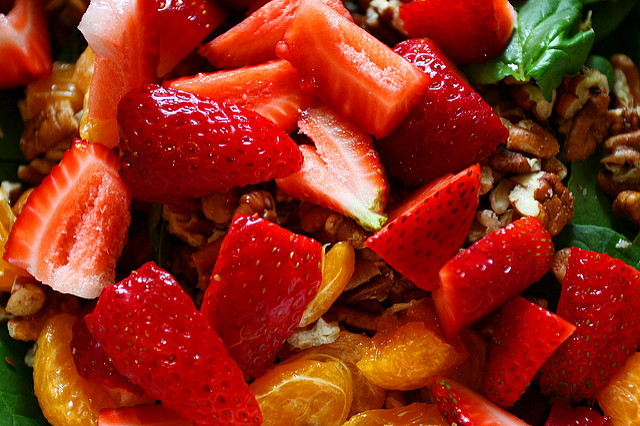Nutrition is a vital part of any aspiring tennis player’s game. While athleticism, agility, mental toughness and sheer talent play a major role in success on the court, keeping a balanced diet featuring the right amounts and types of nutrition is just as important. Diet can be a large factor in a player’s fitness levels and ability to power through grueling three-set matches.
Tennis players who make their body a priority and maintain a healthy lifestyle should enjoy longer careers. Diet and nutrition advice can differ based on each player’s build and genetics, but there are some universal nutrition tips that can serve as a guide for a healthy tennis diet.
Foods tennis players should consider (on a daily basis)
A balanced diet will go a long way to improving nutritional intake. These food types should be consumed on a daily basis, in moderation of course. Here’s a basic rundown of useful nutrients:
Zinc: Helps improve hand-eye coordination. Found in nuts and seeds.
Vitamin A: Helps create white blood cells for repair and to fight diseases. Found in carrots, kale, and melon.
Vitamin B: Improves reaction time and brain function. Found in eggs and potatoes.
Vitamin C: Helps with muscle repair. Found in many vegetables and fruits, particularly oranges.
DMAE: Helps the brain and nervous system. Found in salmon and anchovies.
Foods tennis players should avoid (Pre-match)
Eating the wrong thing before you play can have an adverse effect on your performance. Avoid these foods because they can slow down your metabolism before a match:
Salads: Although salads are a great part of a balanced diet, because they are high in fiber they are not easily digested and can lead to stomach cramps and a general level of feeling uncomfortable.
Pasta: Spaghetti may sound like a good pre-game meal, but it’s easy to overindulge and make yourself sluggish. Distance runners often eat pasta the night before a big race, but they rarely eat it the same day as the race, because pasta causes you to eventually hit a wall due to the way your body processes fat and glycogen.
Caffeine: While Caffeine may give you a perceived energy boost, it’s only for the short term. The caffeine in coffee and soft drinks will inevitably dehydrate you.
Protein Shakes: These should be consumed after a match to help with muscle recovery.
General nutrition tips for the aspiring tennis player
A hearty breakfast should be eaten well before a match. Consider whole-wheat cereals, porridge, and fruits that are low in calories. This combination of carbs will provide you with a steady flow of energy throughout the day. Try and avoid sugar before a match. While sugars will give you a great initial boost, the crash you will experience afterward can be devastating.
While playing a match, it is important to keep your glycogen levels up. An easy way to do this is by eating a banana during a break. It is also advisable to regularly hydrate by drinking water, even if you are not particularly thirsty. Gatorade and other electrolyte drinks are also an option, but personally, chugging a Gatorade between sets always made me feel bloated, so I stick with water.
Kids and junior tennis players can benefit from these tips too. If your child plays youth tennis try to keep them from scarfing down candy and sugar before they play.
Aside from all these nutrition tips, just exercise basic common sense. Don’t eat excessive amounts of fatty foods or chocolate, refrain from binging on alcohol, and skip processed foods or ready meals. Improving your diet just might change your performance on the court more than you think!
Image: Creative Commons user suckamc (no changes made)
 Written by Mark Sampson
Written by Mark Sampson